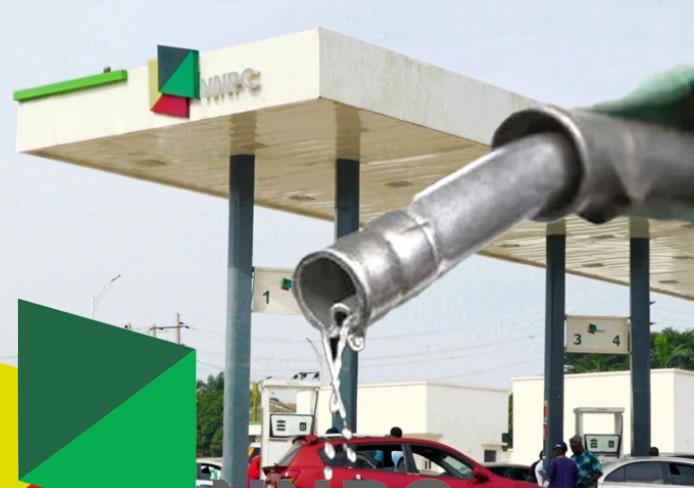•Price to hit N1,000 per litre with 15% tax
By Udeme Akpan, Energy Editor
Nigerians have started to be apprehensive as the depot price of Premium Motor Spirit, PMS, also known as petrol, rose to N889 per litre yesterday from N887 per litre last week.
The highest price of N889 per litre was charged by Matrix while the least price of N871 per litre was charged by Aiteo.
According to depot data obtained by Vanguard, yesterday, other operators, such as Dangote Petroleum Refinery, Eterna, AA Rano and AYM Ashafa charged N877, N874, N871 and N885 per litre, respectively.
The downstream operators said the price of petrol would rise to more than N1,000 per litre when the government recent 15 per cent fuel tax becomes operational after a 30-day transition period expected to end on 21 November 2025.
In a telephone interview with Vanguard, Dr. Billy Gillis-Harry, the National President of the Petroleum Retail Outlets Owners Association of Nigeria (PETROAN), said his members would support the government to implement the tax in a manner that would not affect businesses.
He said: “This is a new measure that has not been implemented before. From all indications that the government has good intentions. So, our association would work with others to implement it.”
The tax on petrol and diesel aims at reinforcing national energy security, safeguarding local refining capacity, stabilising the downstream market, and ensuring a fair and competitive pricing environment.”
The federal government said the tax becomes desirable to protect and enhance domestic refining, which has been threatened by massive importation.
According to the government, “While domestic refining of PMS has begun to increase, and local sufficiency in Diesel production has been achieved, price instability persists, partly due to misalignment between local refiners and marketers. Import parity remains the benchmark for pricing but often sits below the cost recovery point of local producers, particularly during currency and freight fluctuations.
“Left unchecked, these risks undermine our nascent refining sector at the very point of recovery.
The Government’s responsibility is therefore twofold: to protect consumers and domestic producers from unfair pricing practices and collusion, while simultaneously ensuring a level playing field that allows domestic refiners to cover costs and attract continued investment.
“The alignment with the updated technical proposal, it is recommended that an ad-valorem import duty of 1$ percent (15%) be introduced on Premium Motor Spirit (PMS) and Diesel, applied to the Cost, Insurance, and Freight (CIF) value at discharge.
“The tariff is not revenue-driven but corrective, aimed at’ aligning import costs with domestic realities while preserving affordability. Payments would be made into a designated Federal Government of Nigeria FGN) revenue account under the Nigeria Revenue Service (NRS), with verification by the Nigerian Midstream and Downstream Petroleum Regulatory Authority {NMDPRA)before discharge clearance. Implementation would commence after a today transition window, allowing importers to adjust cargoes already in transit and ensuring a smooth rollout without market disruption.”
Already, President Tinubu has approved “the introduction of a 15% J3d-valorem import duty on Premium Motor Spirit (PMS} and diesel to be assessed on the cost, insurance, and freight (CIF) value at discharge, with all payments made into a designated Federal Government of Nigeria (FGN) revenue account and verified by the Nigerian Midstream and Downstream Petroleum Regulatory Authority (NMDPRA) prior to discharge clearance.”
He has directed the “NMDPRA and the Nigeria Customs Service (NCS) to implement a 15 percent import duty on PMS & Diesel, with effect after a 30-day transition period from the date of official notification.”
The President has directed “The NMDPRA, the regulator, to issue appropriate regulations in this regard and take local production into account first before the issuance of import licenses.”
Also, he has also directed “the periodic review of the tariff rate and its continued necessity, including provisions for scaling or sunset measures, as domestic Premium Motor Spirit (PMS) refining capacity expends, under the oversight of the Implementation Committee on Crude o.no Refined Products Sales in Naira.”
The post Nigerians apprehensive as depot price hits N889 per litre appeared first on Vanguard News.

